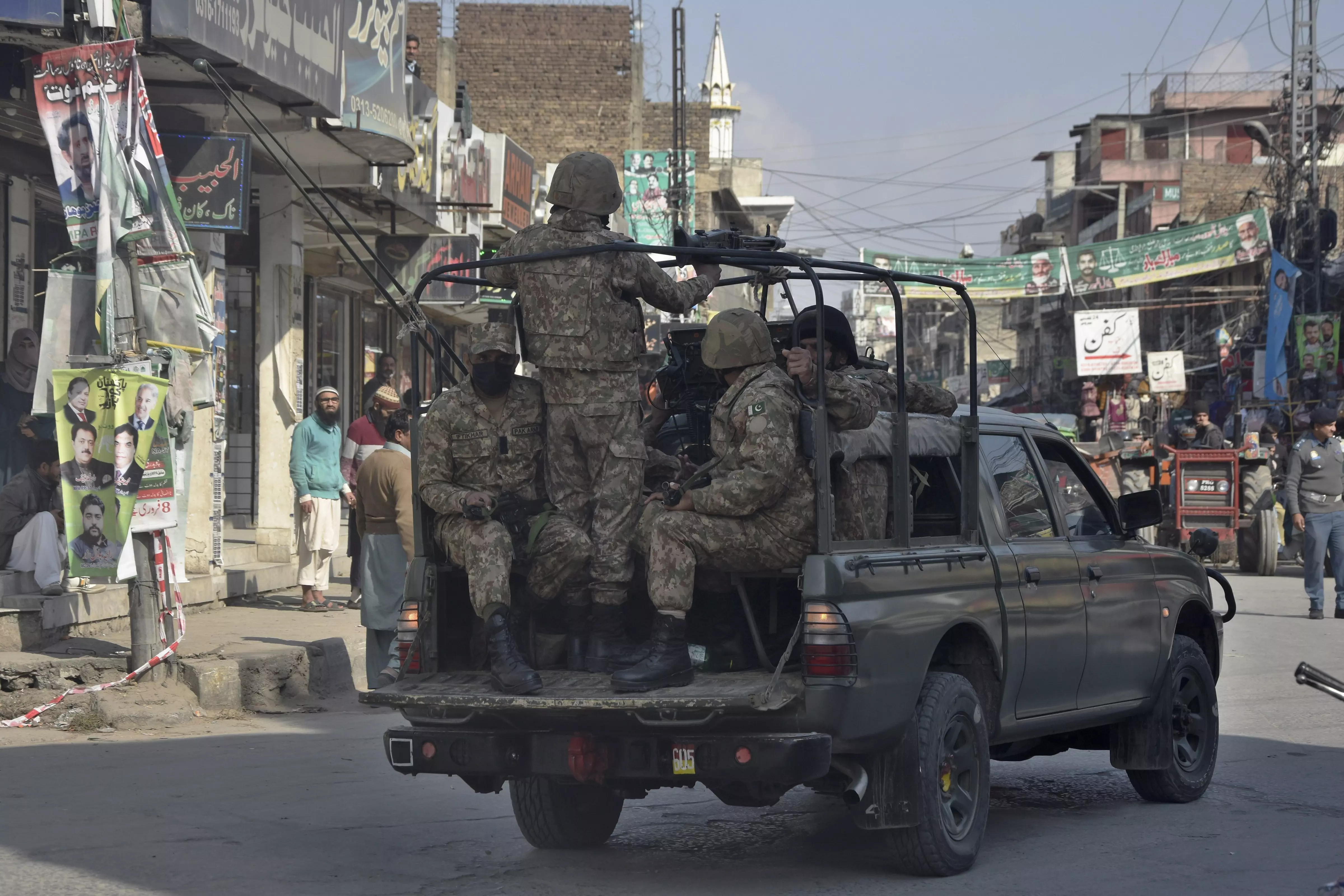
Pakistan votes for new govt today; PML-N may emerge as single largest party
The polls come at a time when the country grapples with an economic crisis, polarised political scene and increased militant attacks

The Pakistan Muslim League Nawaz (PML-N) will likely emerge as the single largest party and the Pakistan Peoples Party (PPP) as a distant second followed by the Pakistan Tehreek-e-Insaf and other parties, a media report said.
The country will vote on Thursday (February 8) to elect a new government. While Pakistan will vote in the House Assembly and four state legislatures, a total of 44 political parties comprising 5,121 candidates are in the fray in the federal legislature and 12,695 in the state legislatures.
The voting which began at 8 am (local time) will continue till 5 am. Security has been beefed up across the country with over 650,000 army, paramilitary and police personnel deployed across its provinces.
‘PML-N may win 115 to 132 National Assembly seats’
While analysts do not foresee a definitive win by any of the contesting parties, an official assessment report compiled on the basis of information collected from police sources, revenue department, labour unions and interviews with professionals in different fields, told The News that PML-N may emerge as the single largest party.
The assessment has been carried out at the police station and union council levels, the lowest administrative units in Pakistan.
It shows that the PML-N is likely to win between 115 to 132 National Assembly seats. Adding together, the reserved seats of women and minorities would mean the party stands a chance to form its government single-handedly with a simple majority if the official assessment turns out right.
As for the provincial assembly seats, the assessment puts them around 190, out of 297 meaning thereby absolute majority in the Punjab Assembly.
According to the official, the party may sweep in the Punjab except in a few districts and likely form the government by a two-thirds majority in the biggest province.
Prospects of PPP
It would also become a lead player in making coalition governments in Khyber Pakhtunkhwa and Balochistan whereas the Pakistan Peoples Party is likely to have its government in Sindh alone.
In the Centre, the PPP is expected to bag 35 to 40 seats, according to the assessment report, whereas the PTI’s independent candidates may fetch 23 to 29 seats.
The Muttahida Qaumi Movement has been assessed to obtain 12-14 seats, Jamiat Ulema-e-Islam six to eight seats, and Pakistan Muslim League (Quaid) and Istehkam-e-Pakistan Party are likely to pull two to three seats each in the National Assembly.
Although the surveys conducted so far have laid out an optimistic projection of the PML-N with regard to its approval rate, which has registered a rise since the return of Nawaz Sharif, none has offered an assessment in terms of seats the party would likely win.
Will Nawaz Sharif be next PM?
The international media has also projected Nawaz Sharif as the future prime minister but it remains unclear if he would be able to obtain a simple majority, according to The News.
Separately, The News reported that the International Crisis Group (ICG), in its latest report, “Pakistan inching towards contested elections”, said that a disputed poll could well result in turmoil on election day and in the aftermath.
It advises all political parties that instead of turning a blind eye to interference by the caretaker governments and law-enforcement agencies, they should uphold their opponents’ right to contest the polls and form a government if elected.
It said that Pakistan is holding general elections in a climate of deep political polarisation and a military crackdown on former prime minister Imran Khan’s PTI party.
“A disputed poll would damage the incoming government’s legitimacy, leaving it ill-equipped to deal with the political and economic instability that is sure to follow,” says ICG Asia Director Huong Le Thu.
Pointing to what it says is the country’s economic survival it states that a standby agreement with the IMF, which ends in March, was a short-term fix, aimed at ensuring that the economy did not collapse before a new government is chosen.
“A new, longer-term deal with the IMF will be crucial to ensure the continued flow of external assistance to cash-starved Pakistan. But such an agreement will not be enough to keep the economy afloat in the absence of political stability, something that will be elusive without a peaceful, credible transfer of power,” it advocates.
(With inputs from agencies)

